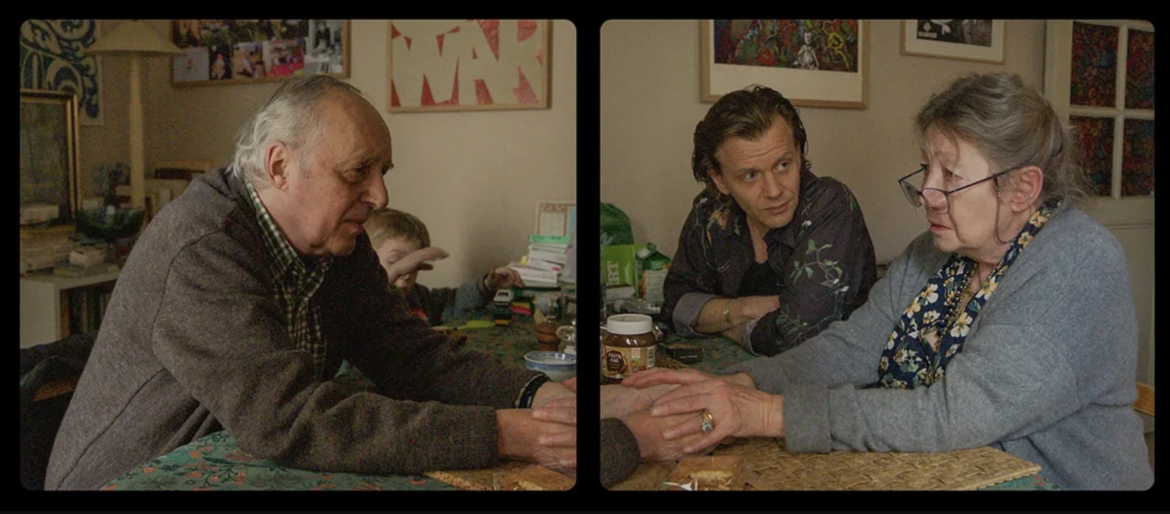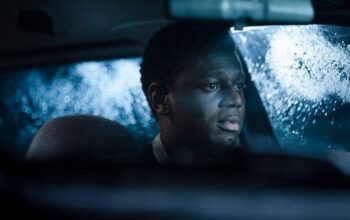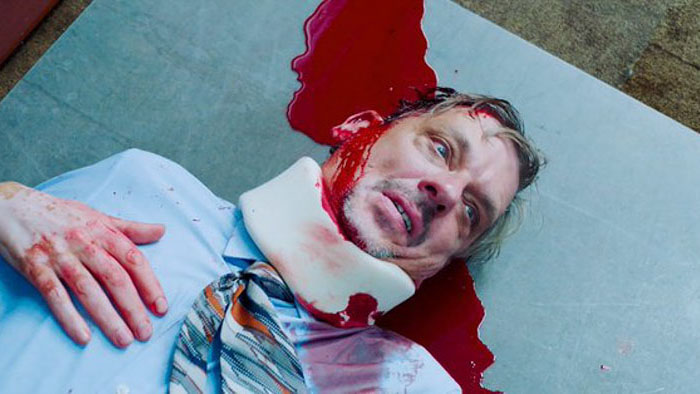
When you sit in a theater seat or in your chair at home to view a Gaspar Noe film, you recognize that you are about to witness great cinema. I have experienced this feeling countless times. “Irreversible” had one of the vilest representations of violence inflicted on a woman and the audience in cinematic history. “Love” his film perfectly and realistically puts on display the horrific damage of a relationship built on the powerful and corruptable emotion known to man on a couple that is not in any shape to handle the responsibilities that come with it.
The iconic depiction of life and death was not only ahead of its time but also has never, since the release of his film, “Enter the Void,” has any film been able to duplicate his idea on the big screen as he did with this film. “Climax” and “I Stand Alone” shook audiences with a fearless attitude that made the sublime notion of what film can be like within a modern cinematic world that consumes audiences’ attention with blockbuster after blockbuster with something to challenge the sensibilities of the viewers. In ways, they were usually not accustomed to being challenged.
It doesn’t matter if it is a new film or a rewatch of a previous film. I never doubted what I was about to experience with any of Gaspar’s films. Today I sat in my theater seat and began watching the latest film by Gaspar Noe, titled “Vortex.” What started as a film with the expectations he has earned with me quickly became one of the best cinematic experiences I’ve had in my lifetime.

The film follows a period in time the film’s two characters’ relationship is put to the test that we all go through in life. These tests are love and loss. How they deal with these tests sets the stage for a compelling story. We’re introduced to the couple whose relationship appears to be like all elderly couples at this stage in life. However, we learn quickly that their relationship is turmoil filled. “Father,” played by the renowned filmmaker Dario Argento and “Mother” is acted by Francoise LeBrun, Who captivated my heart with a performance in this film that sent chills down my spine.
The first sign of turmoil is the panicked look on Mother’s face as she and her husband are resting in their bed. It is clear to discern she can’t sleep. The film has them in bed together. It slowly shifts from a traditional one-camera to a split-camera view, allowing us to see the events involving their relationship from both parties’ perspectives. This technique cinematographer Benoit Debie used enables you to look at the couple as a unit (since they both shared the entire screen) and still understand they are distinct individuals experiencing events separately on their respective screens. Even when they are together. This elevated the film into a space where the storytelling became even more impactful than I could have imagined.

I know some people feel that the split-screen represents the fracture between the couple. However, I believe it still shows the couple as a unit no matter how much screen time presents Mother & Father in their respective frame. They two are individuals as much as they are a unit. It is like when you visit your family. Sometimes you walk into a room to talk to a member in that room, then walk into another to speak with a different person. It doesn’t change the family unit because they occupy separate spaces inside the house. It is a clever device and allows the film in a way for you as the viewer to gravitate to the events or characters you are more interested in viewing.
The following day we get a glimpse into what is transpiring. Father is who, as well as you can be for his age, toils in his workspace writing his novel he hopes to release at some time. He realizes his wife has left their flat and searches for her. As Father searches for Mother on one of the screens, we see Mother aimlessly walking around various shops on the other screen. Father finally discovers her whereabouts and brings her to their flat, where he scolds her for leaving the house. We learn in the conversation that Mother is ill and is experiencing a loss of her mental faculties. Also, in the same discussions, he implies his health isn’t the best, and her episodes are causing a physically fragile Father more stress than he wishes.
Each member’s burden was displayed throughout the film with an unflinching sense of reality. While attempting to maintain normality, Father stressed as he struggled to ensure his wife’s care was adequate. As the viewer saw, he was failing miserably in that department. The couple’s son Stephane played by Alex Lutz, realizes the neglect. The family crumbles and rebuilds itself in a scene where Mother is lucid enough to accept the responsibility of how her illness is affecting them all. The scene is gut-wrenching. And as if this was enough. Father’s emotional state is impacted not by the issues brought on by Mother’s illness. But the deterioration of the 20-year relationship he has also been maintaining on the side. His world is falling about. Father isn’t doing well, and the question is whether he is up to the task is looming over everyone.
The emotional toll that the majority of this film has the viewer pay is from the melancholy performance of Mother by Francoise LeBrun. She outperformed the larger-than-life performance by Anthony Hopkins in the similarly themed film Father. Where that film was all acting but a lot less heart and realism. Francoise’s somber and frightening portrayal captured everything the character was meant to convey. Once the audience realized something was wrong with Mother. The film put her distress on center stage. It took the viewer on a journey of emotions you were unprepared to deal with, from getting lost physically to losing herself mentally. It was a place that forced the viewer into an immersive emotional state that was all Francoise.

This film has a stark and brutal viewpoint of how it ends for many of us. That genuine depiction of the end is terrifying to see in real life as it was on the big screen, from the emotional breakdowns, the deep conversations, and the sadness that comes from losing loved ones. It was all here for you to see in an added dimension due to the incredible cinematography of Benoit Debie. This film is art at its finest. Gaspar Noe made Vortex have you reflect on the fragile nature and appreciate life. He didn’t make this film so that you would walk out of the theater cheering. Vortex is not that kind of film. It is an experience. One that he dedicated it “To all those whose brain will decompose before their hearts.”
Rating 5 out of 5
![]()



